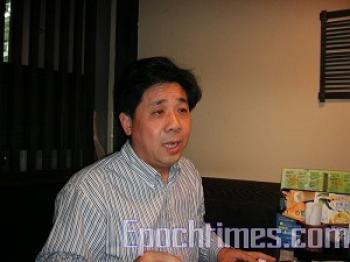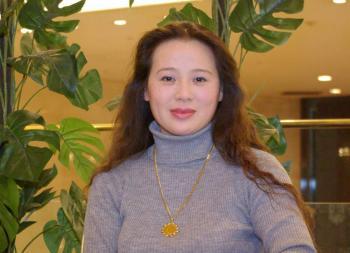TOKYO—Feng Zhenghu carries a Chinese passport, speaks the Chinese language, and usually lives in Shanghai, China—but for the last month he’s been stranded in a Japanese airport eating airplane crackers, not allowed back to his homeland.
He has tried to return to China eight times, but has been sent back every time. On Nov. 4 when Chinese police forced him onto a flight back into Japan upon his arrival in Shanghai, he got the idea of camping out in Tokyo’s Narita International Airport, hoping that officials in China would relent to the very public standoff and let him back in. But so far, that wish hasn’t materialized.
Chinese authorities refusal to allow him into the country came after he published articles criticizing Chinese authorities for the Tiananmen Massacre of 1989. Feng, 54, was also fired from his position as director of the China Enterprise Research Center.
“So many people have got the courage to stand up and change the situation in China; I think the Chinese legal system, and human rights in China will be established. I believe that in the future, China will become better and better,” he said to an Epoch Times reporter.
After being fired he began promoting human rights in Shanghai, attracting the attention of public security officials. In February of this year the Shanghai Public Safety Bureau warned him to stay in Japan temporarily to “avoid persecution” on the 20th anniversary of the June 4 Tiananmen Square Massacre. On June 7 he tried to return for the first time, but staff at the airport inspection station in Shanghai kept him on the plane by saying he was a suspected carrier of bird flu. He was then sent back to Japan. Similar things happened the next seven times he tried to go back.
He said that his actions since Nov. 4 have probably embarrassed Chinese officials who have visited Japan, as his appeals have received attention from Japanese media.
He is also not without supporters from elsewhere too, like Hong Kong. Four Hong Kong human rights activists visited Feng on Dec. 3, among them Szeto Wah and Richard Tsoi, leaders of the Hong Kong Alliance in Support of Patriotic Democratic Movements of China, and Rev. Chu Yiu Ming, chairman of the Homecoming organization . They brought Feng food and gifts from Hong Kong.
The Hong Kong activists criticized Chinese authorities for persecuting Chinese dissidents. “Our visit is to show our support not only for Feng, but also for many other expelled Chinese dissidents,” Szeto Wah said. “They all hold Chinese passports, but have all been denied their legal rights to return to their home country.”
Feng needs all the support he can get. He said he finds it humiliating to be in the plight he is. “At the beginning the biggest difficulty was what to eat and drink. Even though now my life is really not convenient, compared to what I have been through in China, it’s surmountable,” he says.
But what he called the “mental torture” is the hardest to deal with: “Not sleeping well, not eating well, that can’t compare to the mental suffering,” he says. “An intellectual, living like a beggar in this way, it’s a feeling of humiliation.”
He says he’s determined to keep up the vigil until he’s allowed back into China, quoting the old Chinese phrase: “A scholar prefers death to humiliation.”



